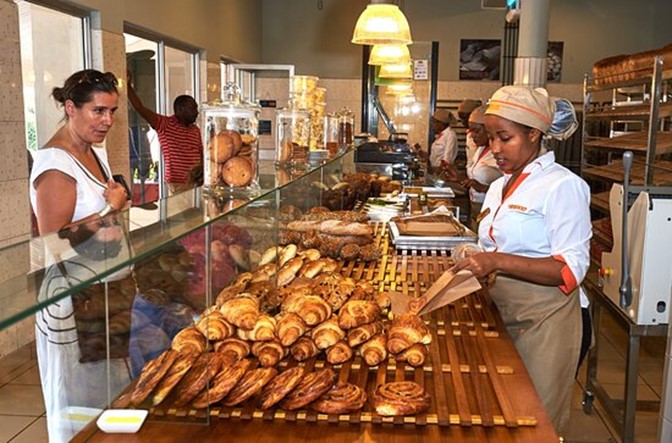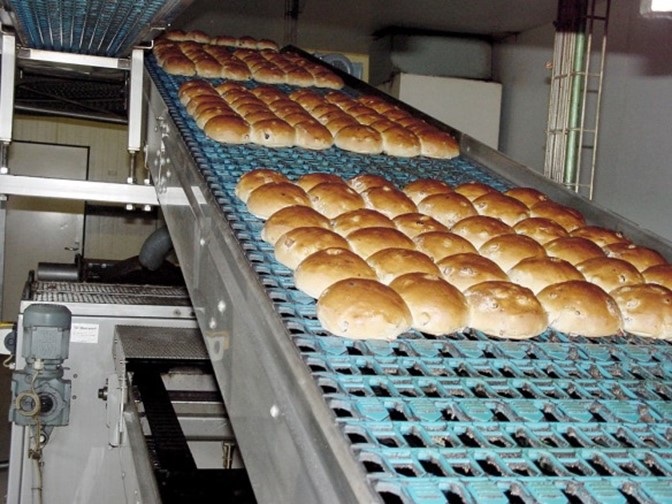Introduction
Imagine you are walking in a busy street in Nairobi, and you smell the aroma of freshly baked bread. You follow your nose and find a small bakery with a sign that says “Welcome to Amazing Bakery.” You enter the shop and see a variety of delicious products, such as cakes, pastries, cookies, and muffins.
The friendly staff receive you warmly and offer you a sample of their best-selling chocolate cake. You take a bite and feel the moist and fluffy texture, the rich and creamy frosting, and the melt-in-your-mouth chocolate chips. You are amazed by the taste and quality of the cake, and you wonder how they make it.
How did this bakery start? What are the steps involved in running a successful bakery business in Kenya? What are the challenges and opportunities in this industry? These are some of the questions that this article answers for you.
If you are interested in learning more about how to start a bakery business in Kenya, then keep reading. This article is for you. Cheer!
To start a successful bakery business in Kenya:
1. Write a Bakery Business Plan

To establish a thriving bakery business in Kenya, write a Bakery Business Plan. Think of this document as something that outlines your goals, objectives, strategies, budget, market analysis, and financial projections for your bakery. A business plan helps you to organize your ideas, identify your strengths and weaknesses, assess the risks and opportunities, and secure funding from investors or lenders.
You can use online templates or hire a professional to help you write a comprehensive and realistic business plan. Your business plan must be clear, concise, and compelling, and must reflect the company’s unique vision and goals. It should also be up to date to track the company’s progress and adapt to changing circumstances. A well-written business plan can help the company succeed and grow. Generally, note that a business plan must contain:
- Executive summary
- Company description
- Market analysis
- Products or services
- Marketing and sales
- Operations and management
- Financial plan
2. Find a Suitable Bakery Business Location
To initiate a prosperous bakery business in Kenya, find a suitable bakery location in the country. Be aware that the location of your bakery determines your customer base, sales, and profitability. Look for a strategic place where there is high demand for bakery products, low competition, and good visibility.
Consider your budget, target market, safety, and accessibility. You can rent or buy a space for your bakery, depending on your financial capability and long-term plans. You need to ensure that the space is big enough to accommodate your equipment, staff, and customers.
Potentially, some of the possible places to start a bakery business in Kenya are:
- Malaba: Note that the World Bank ranks this town in Busia county as the best place to start a business in Kenya. It has a high population, a busy border crossing, and a low cost of living.
- Kisumu: This city on the shores of Lake Victoria is the third-largest in Kenya and the second-best place to start a business according to the World Bank. It has a vibrant economy, a large consumer base, and a growing tourism sector.
- Nairobi: The capital and largest city of Kenya is a hub for commerce, culture, and innovation. It offers a wide range of opportunities and resources for entrepreneurs, as well as a diverse and affluent customer base.
- Nanyuki: This town in Laikipia county is near the equator and Mount Kenya National Park. It attracts many tourists, expatriates, and wildlife enthusiasts, creating a high demand for bakery products.
- Meru: This town in Meru county is popular for its agricultural production, especially of miraa (khat). It has a large population, a favorable climate, and a strategic location along the Meru-Nairobi highway.
3. Get Bakery Business Licenses and Permits
To run a legal and compliant bakery business in Kenya, you need to obtain various licenses and permits from the relevant authorities. Some of the licenses and permits you need are:
- A single business permit from your county government. This costs you around Ksh 5,000 per year.
- A Kenya Bureau of Standards (KEBS) license. This certifies that your bakery products meet the quality and safety standards set by KEBS. This costs you around Ksh 20,000.
- A food handling medical certificate. This proves that you and your staff are free from any diseases that can be transmitted through food. This costs you around Ksh 600 per person and is valid for six months.
- A fire safety certificate. This shows that you have the necessary equipment and measures to prevent and fight fire outbreaks in your bakery. This costs you around Ksh 5,000.
- Buy equipment and utensils for your bakery. You need various equipment and utensils to bake and sell your products. Some of the essential equipment and utensils you need are:
- A commercial oven. This is the main equipment you can use to bake your products. You can choose from different types and sizes of ovens, depending on your budget and capacity. A good quality oven costs you around Ksh 200,000.
- A commercial bread slicer. This helps you to slice your bread into uniform and neat pieces. This costs you around Ksh 100,000.
- A countertop cake display. This helps you to showcase your cakes and attract customers. This costs you around Ksh 150,000.
- An electric hand whisk. This helps you to mix your ingredients and batter. This costs you around Ksh 4,000.
- A nozzle set. This helps you to decorate your cakes and pastries. This costs you around Ksh 2,000.
- Baking pans. These are the containers you can use to bake your products. You need different shapes and sizes of pans, depending on the products you want to make. This costs you around Ksh 2,500.
- Dough mixers. These are machines that help you knead your dough. This costs you around Ksh 1,000.
- An icing spatula. This is a tool that helps you to spread icing on your cakes. This costs you around Ksh 500.
4. Hire and Train Staff for Your Bakery

To launch a successful bakery enterprise in Kenya, you need to hire and train staff to help you run your bakery. You need staff to bake, sell, clean, and manage your bakery. You should look for staff who have experience, skills, and passion for baking. Also, train them on how to handle customers, hygiene, safety, and quality standards. Ensure you pay them fair and competitive wages, and motivate them with incentives and rewards.
5. Market Your Bakery Business
To set up an alluring bakery business in Kenya, promote your bakery business to attract and retain customers. You can use various marketing strategies, such as:
- Word-of-mouth: This is the most effective and cheapest way to market your bakery. You can ask your friends, family, and satisfied customers to spread the word about your bakery and refer new customers to you.
- Social media: You can use platforms like Facebook, Instagram, and Twitter to create and share content about your bakery. You can post pictures and videos of your products, testimonials, offers, and events. You can also interact with your followers and potential customers, and get feedback and suggestions.
- Flyers and posters: You can print and distribute flyers and posters to advertise your bakery in your area. You can include your bakery name, logo, location, contact details, and products. You can also offer discounts and coupons to entice customers.
- Website and online directories: You can create a website and list your bakery on online directories like Google My Business, Jumia Food, and Pigiame. This helps you to reach more customers who are looking for bakery products online. You can also display your menu, prices, and delivery options on your website.
Recap
In conclusion, starting a bakery business in Kenya is a rewarding and profitable venture, if you follow the right steps and strategies. You need to have a clear vision, a realistic plan, a suitable location, a legal and compliant business, a well-equipped and hygienic bakery, a skilled and motivated staff, and a loyal and satisfied customer base.
You also need to be creative, innovative, and adaptable to the changing market trends and customer preferences. By doing so, you can make your bakery stand out from the crowd and achieve your goals.

















